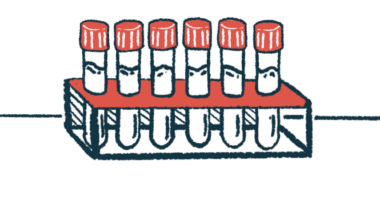Rituxan Superior to Azathioprine in Preventing AAV Relapse, Phase 3 Trial Suggests

Maintenance therapy with Rituxan (rituximab) is superior to standard care with azathioprine for preventing disease relapses in patients with ANCA-associated vasculitis (AAV) who had achieved remission, results of a Phase 3 trial suggest.
These data were disclosed in an oral presentation, titled “A Randomized, Controlled Trial of Rituximab versus Azathioprine After Induction of Remission with Rituximab for Patients with ANCA-associated Vasculitis and Relapsing Disease,” at the 2019 American College of Rheumatology/Association for Rheumatology Professionals Annual Meeting, held recently in Atlanta.
Roche‘s Rituxan, sold under the brand-name Mabthera in Europe, has been shown to be an effective remission induction therapy to control disease activity in AAV patients.
However, Rituxan, often used in combination with glucocorticoids, has also been shown to lose effectiveness over time. In these cases, patients require maintenance therapy to prevent the disease from relapsing after they reach remission. Maintenance therapy usually involves the immunosuppressant medicines methotrexate or azathioprine.
But there is still no consensus on the optimal duration of maintenance therapy, and approximately half of patients end up relapsing within five years.
The international RITAZAREM trial (NCT01697267) was designed to compare the efficacy of two relapse prevention strategies, specifically repeated doses of Rituxan or daily oral azathioprine.
A total of 170 patients with AAV who achieved remission after induction therapy with Rituxan and glucocorticoids were then randomly assigned to a maintenance therapy regimen of 1,000 mg of Rituxan every four months for up to a total five doses or 2 mg/kg per day of azathioprine.
All participants had a history of clinical relapse — 61% had had a major relapse and 28% had been treated with a higher dose of glucocorticoids during induction therapy.
After a follow-up period of at least two years, the clinical data revealed that Rituxan was more efficient in extending the time until AVV relapse than azathioprine. Patients receiving Rituxan as maintenance therapy had a 70% lower risk of having a relapse while in treatment than those taking azathioprine.
After 24 months, 13% of participants in the Rituxan group experienced disease relapse compared with 38% in the azathioprine group. Among those receiving Rituxan, 18% of relapse cases were classified as major, while 38% of relapses in patients taking azathioprine were classified the same way.
Based on these results, the researchers concluded that “[Rituxan] was superior to azathioprine for preventing disease relapse in patients with AAV with a prior history of relapse.”
“There were no new major safety signals for use of these medications in this population,” they added.






